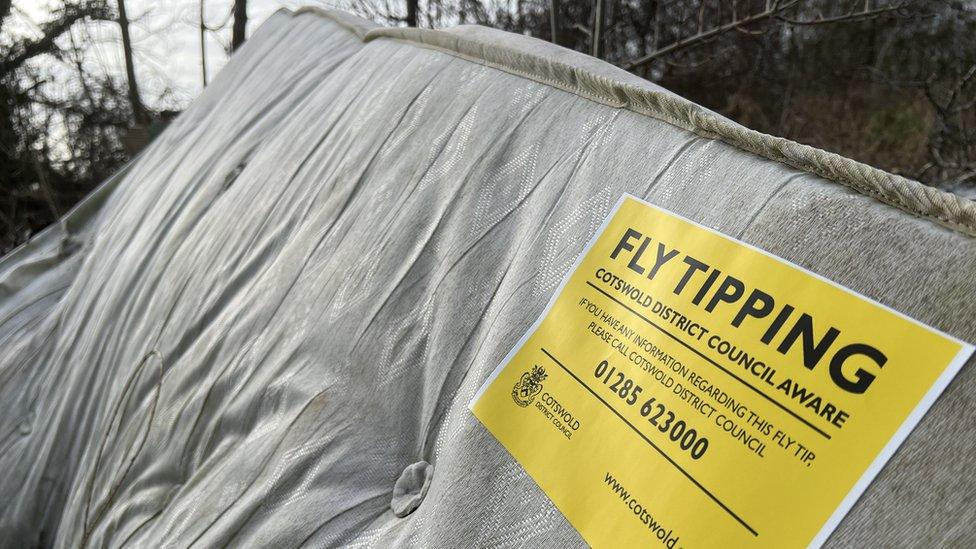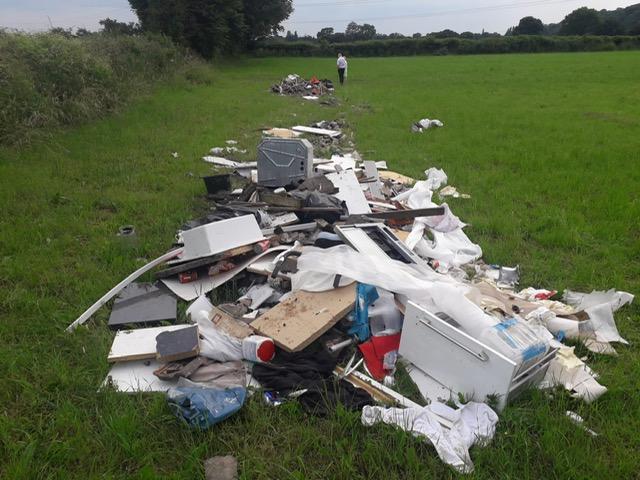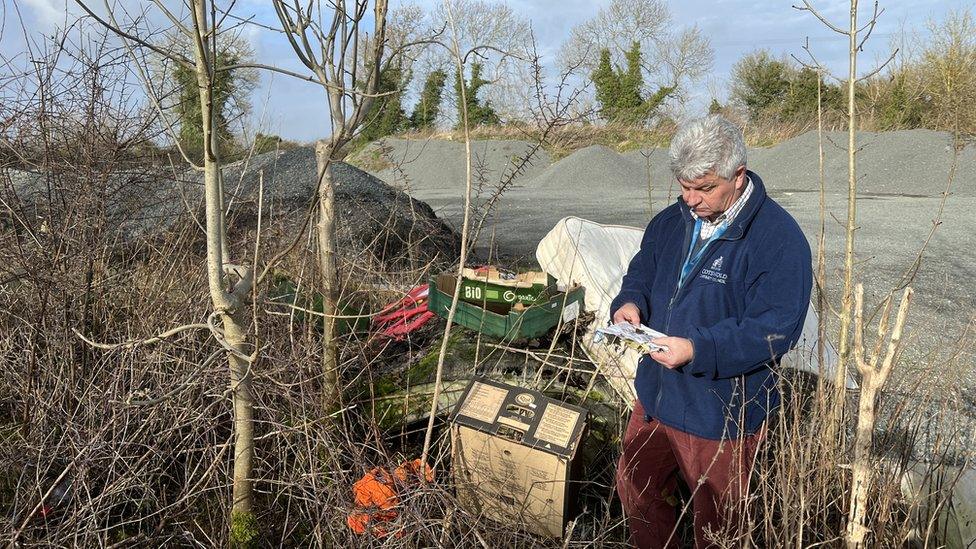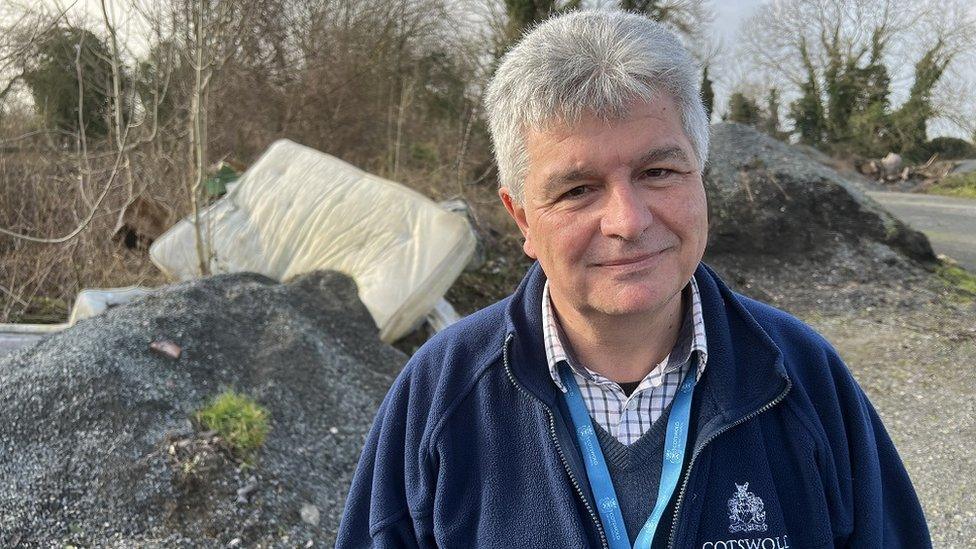Gloucestershire farmer says fly-tipping is 'relentless'
- Published

Cotswold District Council had an 8.4% increase in flytipping over 2022/23
A Gloucestershire dairy farmer says fly-tipping on his land has got worse and he fears it will harm his cattle.
There has been a "marked" increase in waste being dumped in rural parts of the South West.
Government figures show South Somerset had the highest increase in the area in 2022/23, at 67.5%.
Speaking to BBC Gloucestershire, dairy farmer Richard Cornock said "it seems to be relentless".
"Only a few weeks ago I had a sofa dumped down by the road on our field, and again this was something I had to come along and deal with," he said.
Mr Cornock showed the BBC recent fly-tipping on his land in which garden waste was dumped on his field.
"I haven't bothered reporting it because I think it's a needle in the haystack for them."
He fears that waste dumped on his land could potentially kill his cows if ingested.

Government figures show South Somerset had the highest fly-tipping increase in the area in 2022/23
Kevin Lea is the environmental crime officer at Cotswold District Council, where there has been an increase of 8.4% in fly-tipping.
"We receive upwards of five or six reports a day, usually online, of fly-tipping," he said.
He explained to the BBC that often they find a householder who had paid to have waste taken away in good faith, but instead it was fly-tipped.
He has been encouraging people to ask businesses they use to show a waste carrier license, and to ask for receipts.
"Good operators will carry it [the license] in their van. A good business won't be offended."

Kevin Lea says he wants to target businesses dumping rubbish rather than householders
Speaking to BBC Gloucestershire, NFU South West Environment Advisor Harriet Severinsen said that fly-tipping can take an emotional and financial toll on farmers.
Farmers should report any fly-tipping to their local authority or the Environment Agency, Ms Severinsen added.
"We need to make sure this is being reported so we know what's realistically happening on the ground," she said.
South Gloucestershire Council said: "Fly-tipping is completely unacceptable and can blight local communities and the countryside, causing an environmental hazard and harming nature."
"We encourage our residents to report incidents of fly-tipping so they can be thoroughly investigated, and where evidence allows, we will bring those who have committed offences before the courts."
The council said that although it is the landowner's responsibility to clear fly tipped waster from private land, they investigate incidents and endeavour to recover compensation through the courts if a perpetrator is prosecuted as a result.
They advise farmers and other private landowners to remain vigilant and report any suspicious activity to the police, doing their best to ensure their land is secure so only those with permission can gain access.

Follow BBC Gloucestershire on Facebook, external, X, external and Instagram, external. Send your story ideas to us on email, external or via WhatsApp on 0800 313 4630, external.
- Published25 January 2024
